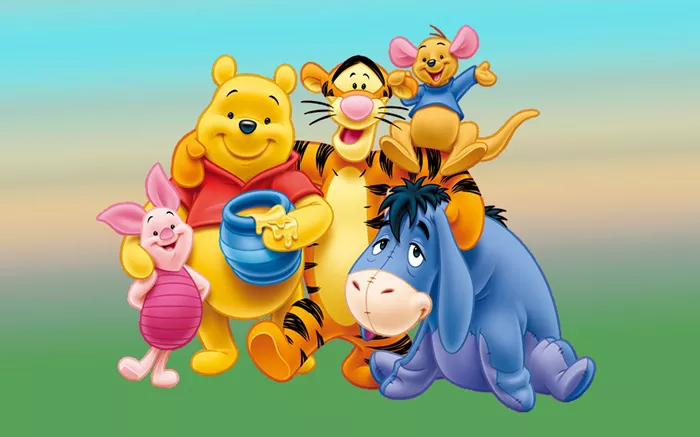Winnie the Pooh, the beloved character created by A.A. Milne, has captured the hearts of millions with his endearing personality and whimsical adventures in the Hundred Acre Wood. While Pooh and his friends may seem like simple creatures living carefree lives, many psychologists and mental health experts have identified underlying mental health issues among the characters. In this article, we will delve into the fascinating world of Winnie the Pooh and explore the mental illnesses exhibited by some of its iconic characters.
Understanding Mental Illness
Before we delve into the specific mental illnesses depicted in Winnie the Pooh, it’s essential to have a basic understanding of what mental illness entails. Mental illness refers to a wide range of conditions that affect mood, thinking, and behavior. These conditions can vary in severity and can impact an individual’s ability to function in daily life.
It’s important to note that mental illness is not a character flaw or a sign of weakness. It is a medical condition that requires understanding, support, and appropriate treatment. By exploring the mental health of fictional characters like those in Winnie the Pooh, we can gain insights into these conditions and foster greater empathy and awareness.
The Mental Illnesses of Winnie the Pooh Characters
1. Depression – Eeyore
Eeyore, the gloomy and melancholic donkey, is perhaps the most obvious example of a character exhibiting symptoms of depression. Throughout the stories, Eeyore is often portrayed as sad, pessimistic, and detached from the world around him. He frequently expresses feelings of worthlessness and hopelessness, such as when he describes his house as “not much of a house” or his tail as “just a little cloud.”
Eeyore’s demeanor and outlook on life align closely with the symptoms of clinical depression, including persistent sadness, loss of interest in activities, and low self-esteem. His character serves as a poignant representation of the challenges faced by individuals living with depression and highlights the importance of empathy and support.
2. Anxiety – Piglet
Piglet, the timid and anxious little pig, epitomizes the experience of living with anxiety. Throughout the stories, Piglet is often portrayed as fearful and apprehensive, constantly worrying about the dangers that lurk in the Hundred Acre Wood. His small size and timid nature contribute to his feelings of vulnerability and insecurity.
Piglet’s anxious tendencies manifest in various situations, such as his fear of thunderstorms or his reluctance to take risks. His character illustrates the pervasive nature of anxiety and the impact it can have on one’s thoughts, feelings, and behavior. Despite his fears, Piglet demonstrates courage and resilience, showing that individuals with anxiety can still find ways to cope and thrive.
3. Attention-Deficit/Hyperactivity Disorder (ADHD) – Tigger
Tigger, the exuberant and hyperactive tiger, exhibits many traits associated with Attention-Deficit/Hyperactivity Disorder (ADHD). He is constantly bouncing around, unable to sit still for extended periods, and often acts impulsively without considering the consequences. Tigger’s boundless energy and lack of inhibition make him a whirlwind of activity wherever he goes.
While Tigger’s antics may be endearing to some, they also reflect the challenges faced by individuals with ADHD in managing their impulses and maintaining focus. Tigger’s character reminds us of the importance of understanding and accommodating neurodiversity, recognizing that everyone’s brains work differently.
4. Obsessive-Compulsive Disorder (OCD) – Rabbit
Rabbit, the meticulous and perfectionistic rabbit, displays traits commonly associated with Obsessive-Compulsive Disorder (OCD). He is obsessed with order, cleanliness, and adhering to strict routines, often becoming distressed when things deviate from his expectations. Rabbit’s need for control and his tendency to obsess over details can lead to feelings of anxiety and frustration.
Throughout the stories, Rabbit’s compulsive behaviors are evident in his meticulous gardening habits and his insistence on organizing events and activities in the Hundred Acre Wood. While his attention to detail can be an asset at times, it also highlights the challenges faced by individuals with OCD in managing their symptoms and finding balance in their lives.
5. Social Anxiety Disorder – Owl
Owl, the wise but socially awkward owl, exhibits characteristics consistent with Social Anxiety Disorder. Despite his intelligence and knowledge, Owl often struggles in social situations, feeling self-conscious and insecure around others. He tends to withdraw from social interactions and prefers the solitude of his treehouse.
Owl’s social anxiety is evident in his hesitance to participate in group activities and his tendency to overanalyze social cues. His character underscores the importance of understanding and supporting individuals with social anxiety, recognizing that their struggles are real and valid.
Conclusion
Winnie the Pooh and his friends may be fictional characters, but they offer valuable insights into the complexities of mental illness. Through their endearing personalities and relatable struggles, they shed light on the diverse experiences of individuals living with conditions such as depression, anxiety, ADHD, OCD, and social anxiety disorder.
By exploring these mental health themes in the context of a beloved children’s story, we can foster greater empathy, understanding, and acceptance of mental illness. Winnie the Pooh teaches us that it’s okay to seek help, lean on others for support, and embrace our differences. As we navigate the ups and downs of life, we can find comfort and inspiration in the wisdom of Pooh and his friends, knowing that we are never alone in our struggles.
[inline_related_posts title=”You Might Be Interested In” title_align=”left” style=”list” number=”6″ align=”none” ids=”8934,8871,8867″ by=”categories” orderby=”rand” order=”DESC” hide_thumb=”no” thumb_right=”no” views=”no” date=”yes” grid_columns=”2″ post_type=”” tax=””]

































